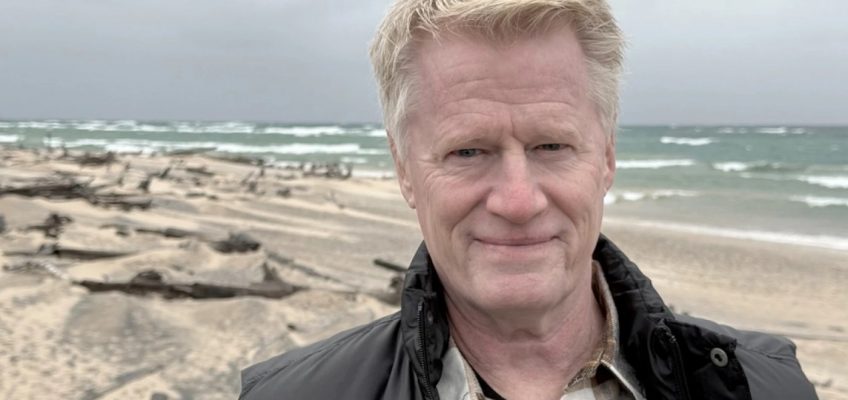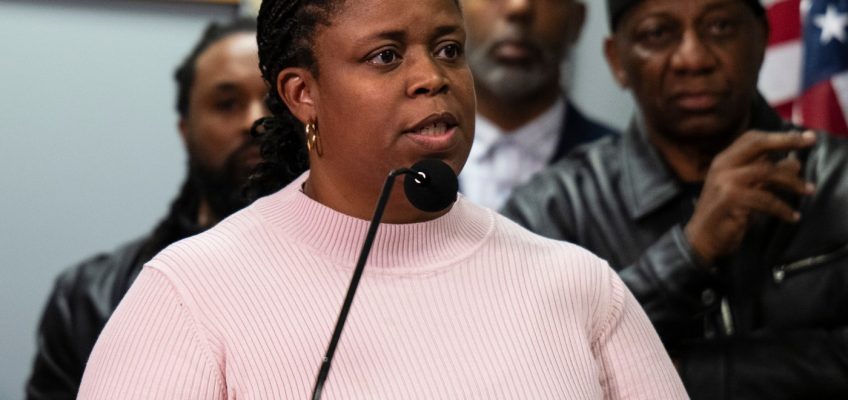By ISABELLA VOLMERT
LANSING, Mich. (AP) — Michigan Gov. Gretchen Whitmer on Tuesday signed into law a new 24% tax on marijuana sales between producers and dispensaries, creating revenue to partially fund her long-promised effort to improve the state’s roads.
Whitmer made road repairs her priority this year. The Legislature’s fiscal agencies estimate the wholesale tax will generate $420 million in new revenue to go towards the annual $1.8 billion road funding plan. But analysts predict the additional tax will inevitably lead to a drop in sales.
“When I took office, I made a promise to fix the damn roads so Michiganders could get where they’re going faster and safer,” she said in a video. Whitmer — long considered a potential Democratic presidential candidate, although she hinted she may not be interested in the job — signed the budget in a closed-door meeting.
The wholesale tax will be levied on the sale of marijuana from growers and processors to retailers.
Adam Hoffer, director of excise tax policy at the Tax Foundation, said the new tax will almost certainly lead to an increase in retail prices and a decrease in sales. The Michigan Senate Fiscal Agency predicted a 14.4% sales decline. Shoppers will still also have to pay a 10% retail excise tax on marijuana, which has been in place since it was legalized in 2018, plus a 6% sales tax.
States that allow the sale of recreational marijuana tax cannabis products at different rates, so it’s difficult to make state-to-state comparisons, Hoffer said. But the wholesale tax will drive the amount of tax on Michigan products from the lower end of the spectrum to the higher. Minnesota, Maryland and Maine also hiked taxes on marijuana products this year.
“This massive tax increase is really going to hurt the legal market in Michigan,” Hoffer said, echoing concerns from critics who say it will encourage illicit marijuana sales.
Stuart Carter, founder of the Detroit Cannabis Industry Association, said the tax will devastate smaller businesses in particular. He called it a “slap in the face” after the tax hike was ushered through the Legislature with little chance for public comment.
The new tax was key in the final negotiations on the road-funding plan. Michigan’s freezing and thawing cycle in the winter creates a continuous need for road repairs and the topic has been an issue for decades. Discussion on where to find the funds has been a source of disagreement; lawmakers usually balk at the idea of raising taxes.
The Citizens Research Council of Michigan, a nonpartisan research organization, ranks Michigan 40th in the nation for road conditions and 28th when it comes to funding road improvements.
Whitmer’s first plan — a 45 cent gas tax increase — was rejected by lawmakers in 2019. She turned to a bonding program in 2020 and the state borrowed $3.5 billion to rebuild highways and bridges. The plan created a marathon of new construction projects, but local roads did not benefit and that borrowing is coming to an end this year.
Michigan’s budget for fiscal year 2026, agreed after months of contentious debate, totals $81 billion, according to the governor’s office. Democrats control the Senate and Republicans control the House. The many disagreements between the parties sent the state barreling towards a government shutdown, and lawmakers technically did not pass a budget by the Oct. 1 deadline. But they agreed to a continuing resolution, and the full budget was passed in the early hours of Friday.
About $1 billion of the package has been dedicated to funding local road and bridge improvement projects. In addition to the marijuana tax, it will also be funded by redirecting all taxes paid at the gas pump towards roads. Previously, gasoline sales tax largely went to a fund for schools.
Lance Binoniemi, vice president of government affairs for the Michigan Infrastructure and Transportation Association, said the marijuana tax is a “nontraditional method” of supporting roadwork funding, but lawmakers recognized the urgency of finalizing a plan.
“We think this is a big step in the right direction,” he said.
Associated Press writer David Lieb in Jefferson City, Missouri, contributed to this report.
The Associated Press’ women in the workforce and state government coverage receives financial support from Pivotal Ventures. AP is solely responsible for all content. Find AP’s standards for working with philanthropies, a list of supporters and funded coverage areas at AP.org.




